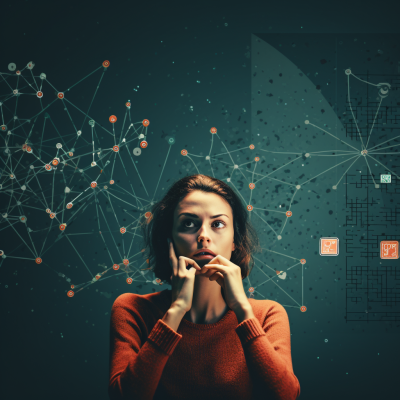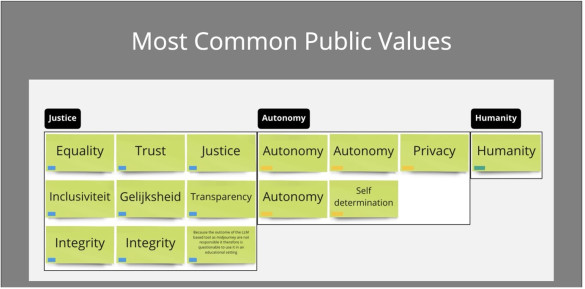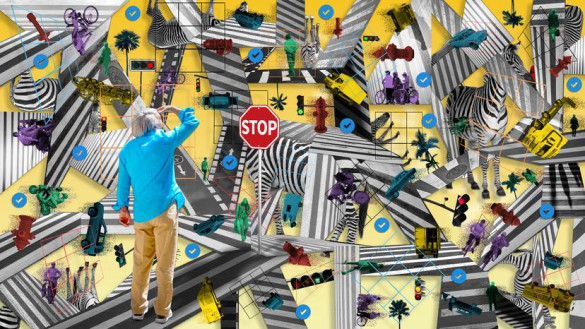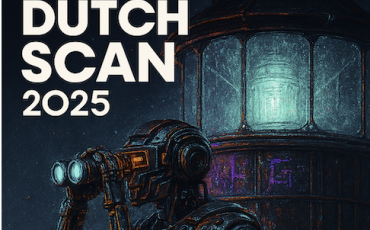John Walker
Young professional from Montana, USA. I currently work on projects for… Meer over John Walker
Responsible AI continues to develop alongside new uses of AI in education. At this years’ onderwijsdagen, Duuk Baten and I took the opportunity to challenge our audience and support them in shaping a better and more responsible future.
The workshop, Immersive ethics, walked participants through three different questions.
In a nutshell, the concerns of our participants highlight the need for clear guidelines, regulations, and ethical frameworks to address the challenges associated with the use of AI image generation tools in education, such as midjourney.

Midjourney, a popular AI image generator, was used as a focusing example for the workshop. The tool allows for users to create images, often seemingly from nothing, to use to their liking. Midjourney generates images from natural language descriptions, called prompts, similar to OpenAI's DALL-E and Stability AI's Stable Diffusion. (Wikipedia, 2023)
For education, midjourney has showed potentially new ways of shaping education in use such as:
More importantly, real challenges have also been presented that raise new ethical and social obstacles to using such a tool.
Through the workshop we found that public values helped discuss and shape meaningful conversation while still moving towards shared actions .


Other topics came up as well at this workshop. The following are more advice and ideas shared by the group.
The Immersive Ethics workshop was more than just a discussion - it was a call to action. It challenged us to think critically about approaches to Generative AI in education and reminded us that at the heart of technological progress must always be a commitment to responsible, ethical practices.
Overall, our workshop reflected the thoughtful and comprehensive need for public values in incorporating generative image AI in education. From the workshop we see a desire from educational institutions to have a focus on greater AI ethics awareness, student engagement, data security, reliability of models, responsible citizenship, and collaboration.
We now hand off the results of this workshop to the Data and AI pilothub by the Npuls (Find out more). These results will help better the pilot’s vision and understanding of our member’s needs when it comes to generative AI in education.
SURF and Npuls continue to try to better understand the questions you have about generative AI and have created a survey to capture them. Please take a minute to add yours here (link to vraagbaak-survey)!
Interested in responsible tech? Check out our new discussion paper and send us your thoughts about recommendations, tools and insights you gather from your own responsible practices.
Young professional from Montana, USA. I currently work on projects for… Meer over John Walker

0 Praat mee